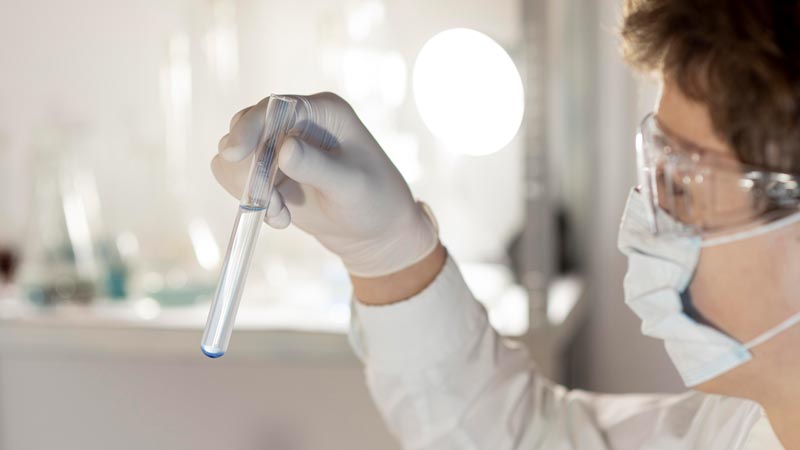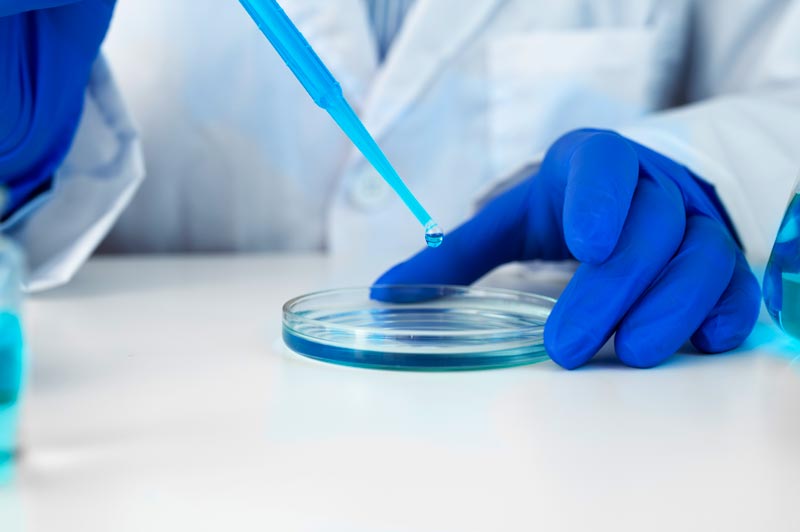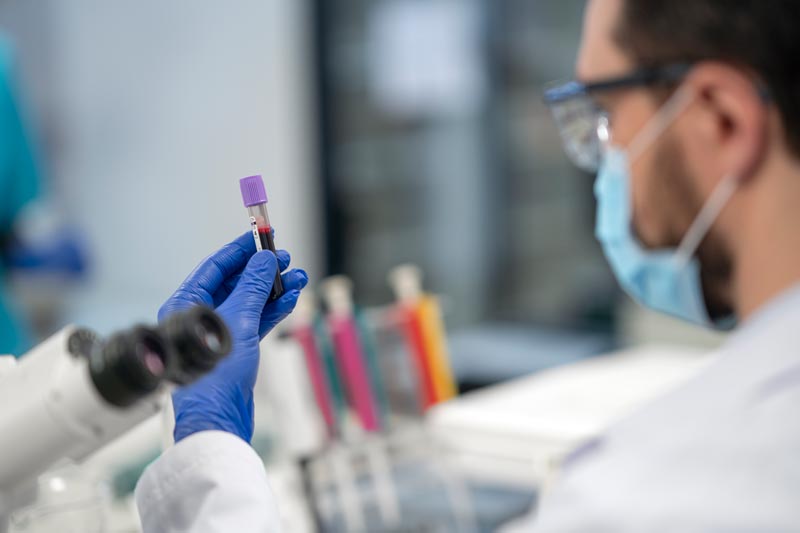
Lab tests are pivotal in diagnosing, monitoring, and managing various medical conditions. Urgent care centers are here to save the day when you need prompt access to these tests without the long wait times associated with traditional medical facilities. Fairfield, CT, is no exception regarding the convenience of urgent care services.
This comprehensive guide will delve into three common lab tests available at urgent care centers in Fairfield, CT: Complete Blood Count (CBC), Urinalysis, and Antigen Tests. Whether you’re wondering, “Can urgent care do blood work?” or simply seeking information on these vital diagnostic tools, this article has everything you need.
A Complete Blood Count, or CBC, is a fundamental laboratory test that provides crucial insights into your overall health. This test evaluates the composition and health of your blood, focusing on three main components: red blood cells (RBCs), white blood cells (WBCs), and platelets.
Getting a CBC is a relatively straightforward process. It typically involves:
When you undergo a complete blood count (CBC), a trained healthcare provider will carefully collect a small blood sample from your arm, typically from a vein in the bend of your elbow. This collection process is relatively quick and minimally discomforting.
After collecting the blood sample, it is sent to a specialized laboratory for thorough analysis. In the lab, the sample undergoes a series of tests that assess various aspects of your blood, including the count and characteristics of red blood cells, white blood cells, and platelets. These tests provide critical information about your overall health and can help identify any underlying medical conditions.
Once the laboratory completes the analysis, the results are reviewed by a healthcare professional, often a physician or a clinical laboratory scientist. They carefully interpret the findings, comparing your CBC results to established reference ranges.
This interpretation allows them to determine if your blood cell counts and characteristics fall within the expected normal range or if any notable abnormalities may warrant further investigation or medical intervention.
Understanding the results of your CBC is crucial for gauging your overall health. Some key components and their significance include:
Red blood cells are critical in transporting oxygen from the lungs to all body parts. When a complete blood count (CBC) reveals low RBC counts, it may indicate anemia, a condition characterized by reduced oxygen-carrying capacity, often caused by factors like iron deficiency.
Conversely, high RBC counts can raise concerns about conditions such as polycythemia, which may result from underlying issues, including bone marrow disorders or chronic hypoxia.
White blood cells are the body’s front-line defense against infections and foreign invaders. Elevated WBC counts in a CBC can signify an ongoing infection or inflammation in the body, prompting further investigation to identify the source of the problem.
On the other hand, a low WBC count may indicate immunosuppression, leaving the body vulnerable to infections and requiring a thorough evaluation to uncover the underlying cause, which could range from medications to underlying medical conditions.
Platelets are essential for blood clotting, helping to prevent excessive bleeding when injuries occur. Any deviations from the normal range of platelet counts in a CBC can raise concerns about bleeding or clotting disorders. Low platelet counts (thrombocytopenia) may lead to a tendency to bruise or bleed easily.
In contrast, high platelet counts (thrombocytosis) can increase the risk of abnormal clot formation, potentially leading to conditions like deep vein thrombosis or stroke. Proper evaluation and diagnosis are crucial to managing platelet-related issues effectively.
Urinalysis is a diagnostic test that analyzes urine to gain insights into kidney function and overall health. It’s a versatile test that can detect various conditions, making it an invaluable tool in urgent care settings.
Urinalysis serves as a valuable diagnostic tool capable of detecting a range of health issues:
Urinalysis can provide critical insights into kidney health by identifying abnormal levels of protein or blood in the urine. Elevated protein levels may be indicative of kidney disease, while the presence of blood can signal kidney dysfunction or damage.
Specific markers in the urine, such as bacteria, white blood cells, or nitrates, can be strong indicators of a urinary tract infection. These telltale signs assist healthcare professionals in promptly diagnosing and treating UTIs, preventing potential complications.
One of the early signs of diabetes that urinalysis can detect is elevated glucose levels in the urine. When blood sugar regulation falters, excess glucose may spill into the urine, making urinalysis an important tool for early diabetes detection and management.
Urinalysis also plays a pivotal role in assessing an individual’s hydration status. By analyzing specific gravity, healthcare providers can gauge how concentrated or diluted the urine is, helping determine whether a person is adequately hydrated or experiencing dehydration. This information is crucial for maintaining overall health and preventing dehydration-related complications.
A urinalysis involves several steps:
You’ll typically be requested to provide a urine sample, often collected in a sterile container, to prevent contamination during a urine analysis.
Once the urine sample is obtained, healthcare professionals visually inspect it to assess characteristics like color, clarity, and odor, which can offer initial insights into potential health issues.
A chemical dipstick is immersed in the urine, detecting specific substances such as glucose, protein, blood, or nitrites, providing additional information about the individual’s health status.
A portion of the urine sample is examined under a microscope to scrutinize the presence of any cellular abnormalities, crystals, or other particles that may not be evident during the initial visual assessment, aiding in the diagnosis of underlying medical conditions.
Interpreting urinalysis results involves considering several critical factors that can provide valuable insights into a person’s health:
The color and clarity of urine are essential indicators. Typically, urine falls within the range of pale yellow to amber, with changes in color or cloudiness potentially signaling underlying issues. For instance, dark urine might indicate dehydration, while cloudy urine could point to infections or crystals.
Specific gravity measurement in urinalysis assesses the concentration of solutes in urine and reflects a person’s hydration status. Low specific gravity may suggest overhydration, while high values can indicate dehydration or the presence of substances like glucose, protein, or ketones that make urine denser.
Detecting elevated protein levels in urine can be a red flag for kidney disease. Healthy kidneys typically filter out waste products while retaining proteins, but when the filtration process is compromised, excess protein may leak into the urine, indicating potential kidney dysfunction.
Elevated glucose levels in urine can be concerning, as it often suggests uncontrolled diabetes. In diabetes, the body cannot effectively regulate blood sugar, leading to excess glucose in the bloodstream that spills into the urine. Detecting glucose in the urine can be an early indicator of the disease or poor blood sugar management.
The presence of blood in the urine, known as hematuria, requires careful attention, as it can be a symptom of various underlying conditions. Hematuria may result from urinary tract infections (UTIs), kidney stones, kidney disease, or even bladder or prostate issues. It’s crucial to determine the source of the blood and investigate further to diagnose and treat the underlying cause promptly.

Antigen tests have gained significant attention, especially during the COVID-19 pandemic. These tests are designed to detect specific proteins on the surface of viruses, including the SARS-CoV-2 virus responsible for COVID-19. Let’s delve into the details of antigen tests and their role in urgent care settings.
Antigen tests are an essential tool in diagnosing infectious diseases like COVID-19. Here’s how they work in more detail:
Antigen tests identify viral proteins in patient samples, typically from nasal or throat swabs. For COVID-19, these tests target SARS-CoV-2 viral antigens, unique proteins on the virus’s surface, allowing specific virus detection.
Antigen tests offer rapid results, often within 15-30 minutes, a valuable asset in healthcare facilities, airports, and community testing sites. Swift identification and isolation of infected individuals are critical for disease control.
Antigen tests are crucial in managing infectious diseases like COVID-19 during outbreaks. Their quick results facilitate swift identification and isolation of infected individuals, contact tracing, and public health measures to limit disease transmission, curbing its impact on communities.
While antigen tests are rapid and convenient, they may have slightly lower sensitivity than PCR tests. Often used alongside PCR tests, positive antigen results are confirmed with PCR for accuracy, especially in clinical diagnosis or international travel scenarios.
Antigen tests are often compared to other diagnostic methods, such as PCR (polymerase chain reaction) and antibody tests. Here’s how they differ:
While antigen tests are valuable tools, they do have some limitations to consider:
Antigen tests have the potential to yield false positives and false negatives, underscoring the need for confirmatory testing in certain situations to ensure accurate results.
Antigen tests exhibit their highest accuracy when conducted during the initial phases of infection when viral loads are elevated, making early testing crucial for reliable results.
The specificity of an antigen test relates to its capacity to identify negative cases accurately. While they generally perform well, there is a slight possibility of false positives, necessitating the consideration of confirmatory PCR testing to validate results when necessary.

Getting lab tests at reliable urgent care center like DOCS Urgent Care & Primary Care Fairfield offers several benefits, making it a convenient and efficient option for many individuals. Here are some of the advantages:
Urgent care centers excel at delivering swift lab test results, a vital advantage for patients facing acute health issues. The prompt turnaround time enables healthcare providers to diagnose and initiate treatment promptly, enhancing patient outcomes. Whether assessing a potential infection, monitoring glucose levels, or analyzing cholesterol, the expeditious results from urgent care labs significantly contribute to informed medical decisions.
Furthermore, swift results can alleviate patient anxiety, as waiting for critical health information can be distressing. Patients can gain peace of mind knowing that their lab tests will yield results quickly, allowing them to take appropriate actions based on their health status. This advantage is particularly crucial when managing conditions that require immediate attention, such as infections or allergic reactions.
One of the key benefits of urgent care centers is their extended operating hours, which often include evenings and weekends. This extended availability caters to the diverse schedules and needs of patients. Unlike traditional healthcare settings that adhere to regular business hours, urgent care centers ensure that individuals can access lab testing near me in Fairfield, CT, and medical services at times convenient for them.
This convenience is particularly valuable for those who work during the day or have busy schedules. Patients no longer need to take time off work or wait for days to access lab tests. Instead, they can visit an urgent care center during evenings or weekends, reducing disruptions to their daily lives.
Urgent care centers have a walk-in policy, eliminating the need for appointments when seeking lab tests. This feature significantly reduces patients’ wait time, ensuring they can access diagnostic services promptly.
Unlike primary care physicians, who often require appointments scheduled weeks before, urgent care centers offer immediate access to lab testing near me in Fairfield, CT. This walk-in availability is advantageous when patients require urgent assessments for symptoms or conditions that cannot wait. It streamlines the healthcare process, allowing patients to address their health concerns without unnecessary delays.
Urgent care centers provide a comprehensive range of lab tests, offering patients a one-stop solution for their diagnostic needs. From routine blood work to specialized tests, these centers ensure individuals can obtain a broad spectrum of diagnostics under one roof.
This convenience is especially valuable when patients require multiple tests or have complex health concerns. Rather than navigating different healthcare facilities or enduring long waits at various laboratories, patients can rely on urgent care centers to perform an array of tests efficiently. Whether checking cholesterol levels, conducting drug screenings, or assessing thyroid function, these centers offer a holistic approach to diagnostics.
Urgent care centers are renowned for their cost-effective approach to healthcare. Lab testing at urgent care centers is often more affordable than similar services in emergency rooms. This cost savings can be a crucial factor for individuals without health insurance or those with high deductibles.
Patients can avoid the high costs associated with emergency room visits by choosing urgent care for lab testing. This affordability ensures that healthcare remains accessible to a broader population, promoting better health outcomes.
Urgent care centers play a vital role in reducing the burden on emergency rooms by offering lab testing for non-life-threatening conditions. Patients with injuries or illnesses that do not require immediate critical care can opt for urgent care, allowing emergency rooms to allocate resources more efficiently to patients in severe distress.
This reduction in emergency room visits benefits both patients and the healthcare system. Patients can avoid long wait times and potentially high costs associated with emergency room care, while emergency departments can focus on life-threatening cases.
Urgent care centers provide a continuum of care by offering immediate follow-up care or referrals based on lab test results. This seamless transition from diagnostics to treatment enhances patient outcomes and ensures that individuals receive the necessary medical attention promptly.
For example, the urgent care center can prescribe antibiotics and guide symptom management if a lab test indicates an infection. In cases requiring specialized care, such as referral to a specialist, urgent care centers can facilitate these transitions, ensuring patients are on the right path to recovery without unnecessary delays.
Urgent care centers are strategically located in communities, making them easily accessible to many individuals. This accessibility extends beyond lab testing near me in Fairfield, CT, to include services like immunizations and health screenings, promoting preventive healthcare.
Patients can only travel short distances or endure lengthy commutes to access lab tests or routine healthcare services. The proximity of urgent care centers to residential areas ensures that healthcare is within reach, encouraging individuals to prioritize their health and well-being through regular check-ups and screenings.
In Fairfield, CT, Urgent Care Centers provide convenient access to crucial lab tests like Complete Blood Counts (CBCs), Urinalysis, and Antigen Tests, which are vital for timely healthcare diagnosis and treatment. Urgent care centers offer comprehensive testing services, whether dealing with symptoms, needing preoperative assessments, or seeking COVID-19 screening. DOCS Urgent Care & Primary Care Fairfield excels in delivering swift and efficient urgent care lab testing, ensuring accuracy and accessibility. Prioritize your health, leverage the convenience of urgent care in Fairfield, CT, and trust our facility in Fairfield, CT, with accessible urgent care lab testing and dedicated healthcare professionals to support your journey toward better health.
Contact us for your urgent care lab testing needs today!


During this surge in COVID-19 cases, our primary focus is meeting the high demand for tests, and we are seeing higher than usual wait times. This means we are unable to answer most phone calls. Please know that our teams are working very hard during this time to care for as many patients as safely as possible. Please click the button below for answers to common questions. We appreciate your understanding.